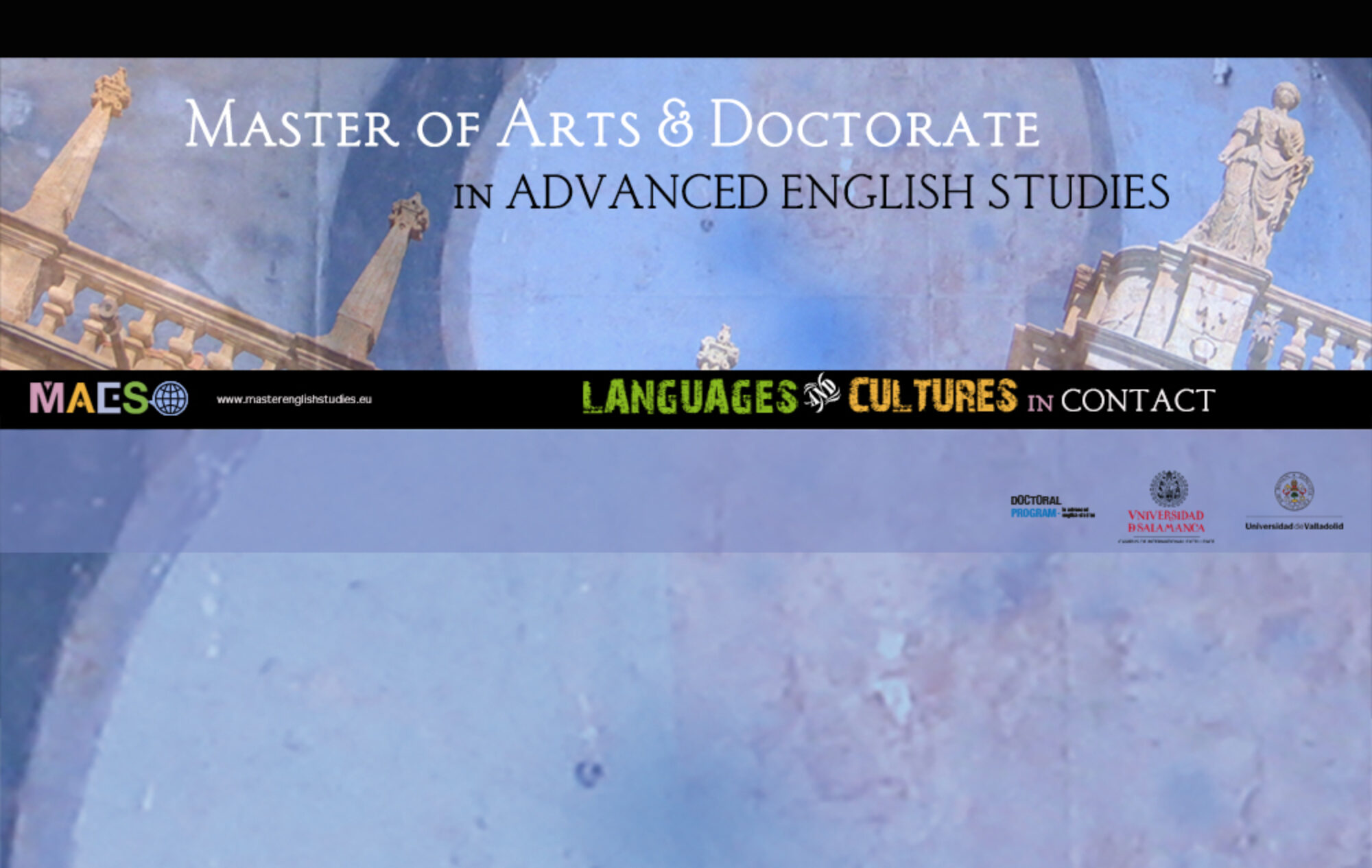Keynote speakers 2024
Juan Ignacio Oliva (Universidad de La Laguna)
Juan Ignacio Oliva is full professor of Anglophone Postcolonial Literatures (with an interest in Ecocriticism). He studies humans and their environment in ecopoetry, and the interactive observation of landscape and the relationship of sensitive selves with an agent and eloquent nature. In addition to several co-edited monographs in journals such as ExCentric Narratives (3), or RCEI (64/77/81/82/83), he has edited The Painful Chrysalis. Essays on Contemporary Cultural and Literary Identity (Peter Lang, 2011), Realidad y simbología de la montaña [Reality and Symbology of the Mountain](UAH, 2012) and co-edited Revolving Around India(s): Alternative Images, Emerging Perspectives (CSP, 2019). He is editor of Revista Canaria de Estudios Ingleses (2014-), and head of the Universidad de La Laguna Centre for Canadian Studies (1997-). Currently, he holds the position of president of the Spanish James Joyce Association (2019-), and vice president of SAAS (Spanish Association for American Studies): He was also president of the European Association for the Study of Literature, Culture and the Environment (EASLCE, in the period 2014-2016) and of the Spanish Association for Interdisciplinary India Studies (AEEII, 2014-2019). He is a member of the research groups GIECO-Franklin-UAH (Ecocriticism) and Ratnakara-UAB (Indian Ocean Literatures).
https://institutofranklin.net/juan-ignacio-oliva-cruz
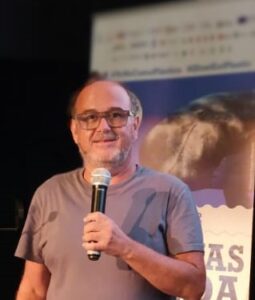
«Post- Trans- Humanism in Vandana Singh’s Ambiguity Machines & Other Stories (2018)»
November, 22 in-site, 13:00 h. Aula 11 (Anayita, Faculty of Philology).
Manuel Portela (University of Coimbra)
Manuel Portela is full professor in the Department of Languages, Literatures and Cultures (English) at the University of Coimbra. His research focuses on digital critical editing, electronic literature, and comparative media studies. Those parallel interests are reflected in Scripting Reading Motions: The Codex and the Computer as Self-Reflexive Machines (MIT Press, 2013) and Literary Simulation and the Digital Humanities: Reading, Editing, Writing (Bloomsbury, 2022), in the PhD Programme in Materialities of Literature (cofounder and director), and in the LdoD Archive: Collaborative Digital Archive of the Book of Disquiet (2017-2024), an experimental textual environment. He has also worked as theatre director, cultural programmer, curator, and translator. He is the current Director of the General Library of the University of Coimbra.
https://apps.uc.pt/mypage/faculty/mportela/en

“Bibliographic Codes and Reading Frames in B.S. Johnson’s Novels”
December 4th, 2024 – 17:00 h. (CET), online (Zoom).
Fiona Sampson (poet, literary biographer and writer, Professor Emerita of Poetry at the University of Roehampton)
Fiona Sampson MBE FRSL is a leading British poet, literary biographer and writer about place. Her most seventh and most recent poetry collection, Come Down (2021), received the European Lyric Atlas Prize, Naim Frashëri Laureateship, and Wales Poetry Book of the Year. Awarded an MBE for services to literature by the Queen, as well as a Cholmondeley Award, the Newdigate Prize, and multiple awards each from the Arts Councils of England and Wales, the Society of Authors, Arts and Humanities Research Council, and Poetry Book Society, her work has received multiple Book of the Year selections. She has been translated into 38 languages and been honoured with international prizes in the US, Bosnia, India, France, Albania and North Macedonia. Her 24 books to date include the monographs Beyond the Lyric (Penguin 2012) and Lyric Cousins (2016), and she edited the Faber Percy Bysshe Shelley. Her study of Limestone Country was Guardian Book of the Year. The critically acclaimed In Search of Mary Shelley was followed by Two-Way Mirror: Elizabeth Barrett Browning (2022), a New York Times Editors’ Choice, Washington Post Book of the Year, and a finalist for the Plutarch Prize and PEN’s International Biography Prize. Also a critic, broadcaster and librettist, collaborating frequently with musicians and visual artists, she edited the UK’s national periodical of record, Poetry Review, from 2005-12. She recently coauthored Collaborative Poetry Translation (Routledge), serves internationally on literary juries and the boards of publishing houses and literary NGOs, has founded and directed an international poetry festival, was a Council member of the Royal Society of Literature, and is Trustee of the Royal Literary Fund. She is Professor Emerita of Poetry at the University of Roehampton, and Fellow of Royal Society of Literature and of the British Trust for Literary Romanticism. She’s at work on a biography of George Sand (for Penguin and Norton) and a study of Jean-Jacques Rousseau (for Princeton).
https://pure.roehampton.ac.uk/portal/en/persons/fiona-sampson
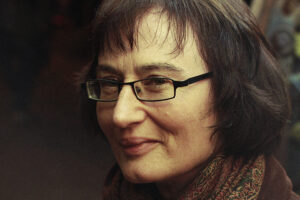
«Romantic Terrain: interactions with the landscape and with each other”
December 11th, 2025. 17:00 h. (CET), online (Zoom).
Nathalie Cochoy (University of Toulouse)
A former fellow of the Ecole Normale Supérieure of Fontenay-Saint Cloud, Nathalie Cochoy is Professor of American Literature at the University Toulouse-Jean Jaurès. She is the author of Ralph Ellison, La Musique de l’Invisible (Belin, 1998), and of Passante à New York (Bordeaux University Press, 2010). She co-directed The Art of the City (Caliban, 2009), Marcher dans la Ville (Sciences de la Société, 2016), Disappearances (Caliban, 2016), The Suburbs: New Literary Perspectives (Fairleigh Dickinson Press, 2022) and City Ruins in American War Narratives (Transatlantica, 2022). She also directed City Instants (e-rea, 2010) and Coincidences (Miranda, 2014). She wrote numerous articles on the representation of urban and natural spaces in American literature. She was the editor-in-chief of Transatlantica for literature and the arts from 2009 to 2015. She was the chair of the research center “Cultures Anglo-Saxonnes/Center for Anglophone Studies” in Toulouse from 2016 to 2021.
https://cas.univ-tlse2.fr/accueil-cas/membres/nathalie-cochoy

“The Art of Loss in Modern Novels.»
January 17th, 2025. 17:00 h. (CET), online (Zoom).
Miriam Fernández Santiago (Universidad de Granada)
Dr. Miriam Fernández-Santiago is a full professor of north American Literature at the University of Granada, where she teaches North American Literature at undergraduate level and Literary Criticism at graduate level and is the current head of the English Department. Her research interests include contemporary North American literature from the theoretical perspective of trauma, vulnerability and disability studies, posthumanism, and digital humanities over the last decade. Her most recent publications include two edited volumes in 2023 titled Representing Vulnerabilities in Contemporary Literature and Embodied VulnerAbilities in Literature and Film, book chapters such as “Female Ageing and Technological Reproduction. Feminist Transhuman Embodiments in Jasper Fforde’s The Woman Who Died A Lot.” (Palgrave 2022), “Pretty Dolls Don’t Play Dice. The Calculated Vulnerabilities of Jennifer Egan’s Manhattan Beach (2017)” (Routledge 2023), or “Attention to What? The Poetics, Ethics and Attentional Economies in Dave Eggers’s The Parade” (Routledge 2024), as well as journal articles like “Of Language and Music. A Neo-Baroque, Environmental Approach to the Human, Infrahuman and Superhuman in Richard Powers’ Orfeo” (Anglia 2019), “Accountable Metaphors. Transhuman Poetics of Failure in TaoLin’s Taipei.” (Atlantis 2021), or “Post-postmodernist Aesthetics of Irrelevance: Textual Disability as Narrative Prosthesis (The Lin/Wallace Connection)” (Critique 2021).
https://directorio.ugr.es/static/PersonalUGR/*/show/4ec17ca6ea658b2adf2c530e1cffc8fb
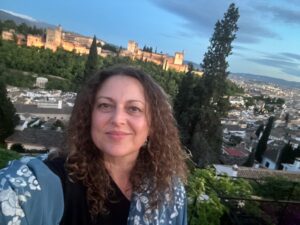
«The Neo-Apollonian: A Posthumanist Sign of the Digital Times”
February 5th, 2025 – time TBA (CET), in person (Faculty of Philology) and online (Zoom).
Rosario Arias Doblas (Universidad de Málaga)
“Assemblages of Feeling in (Neo-)Victorianism”
Rosario Arias is Professor of English Literature at the University of Málaga, Spain. She has published widely on (neo-)Victorian fiction, contemporary Anglophone fiction, literary and critical theory, gender studies and feminism, as well as the intersections between literature and other disciplines as in Environmental Humanities and Medical Humanities. She has co-edited (with Patricia Pulham) Haunting and Spectrality in Neo-Victorian Fiction (Palgrave, 2010), (with Patricia Pulham, Christine Ferguson, and Tatiana Kontou) Spiritualism, 1840-1930 in the Victorian Concepts series (Routledge, 2014), (with Lin Pettersson) Reading the Trace in Modern and Contemporary Fiction (Gylphi, 2022), and, in Spanish, with Juan-Jesús Zaro-Vera, Spanish Spiritualist Writings and its Dissemination through Translations (Reichenberger, 2023). Recently she has co-authored Women and Entertainment in the Victorian Home (with Laura Monrós-Gaspar, in Spanish) (Publicacions Universitat València-PUV, 2023). She leads both the LITCAE research group and the Literary Assemblage Project (RELY), and is part of the Erasmus+ project “EcoStories”, led by University of Graz. Arias is currently the President of the Spanish Association of Anglo-American Studies (AEDEAN), and the President of Victorian and Neo-Victorian Society in Spain (VINS). Arias is a member of Academia Europaea, and Fellow of the English Association.

“Assemblages of Feeling in (Neo-)Victorianism”
February 26th, 2025 – 17:00 h. (CET), online (Zoom).
Jewel Spears Brooker (Eckerd College in St. Petersburg, Florida)
Jewel Spears Brooker is the author or editor of 11 books, most recently T. S. Eliot’s Dialectical Imagination (2018). Her earlier work includes Mastery and Escape: T. S. Eliot and the Dialectic of Modernism (1994) and Reading The Waste Land: Modernism and the Limits of Interpretation (1990, co-author, Joseph Bentley). She is the co-editor with Ronald Schuchard of two volumes of the critical edition of The Complete Prose of T. S. Eliot: Apprentice Years, 1905-1918 (2014) and Still and Still Moving, 1954-1965 (2019). Dr. Brooker edited T.S. Eliot: The Contemporary Reviews (2004), Approaches to Teaching Eliot’s Poetry and Plays (1988), and Conversations with Denise Levertov (1998). She has written scores of essays on modern writers, including T.S. Eliot, Joseph Conrad, Denise Levertov, Richard Wilbur, Katherine Anne Porter, and Shusaku Endo. She has served as president of the South Atlantic Modern Language Association, the T. S. Eliot Society, the society for Christianity and Literature, and other professional organizations. Dr. Brooker served six years as a member of the National Humanities Council of the National Endowment for the Humanities. She is a member of Phi Beta Kappa.

“Time and Consciousness in Virginia Woolf and T. S. Eliot”
Date & time TBA (CET), online (Zoom).
David Cooper (Manchester Metropolitan University)
David Cooper is a Senior Lecturer in English at Manchester Metropolitan University, UK, where (with the creative non-fiction writer, Rachel Lichtenstein) he established and continues to direct the Centre for Place Writing. A founding co-editor of the international, interdisciplinary journal, Literary Geographies, he is the co-editor of Poetry & Geography: Space and Place in Post-war Poetry (2012) and Literary Mapping in the Digital Age (2016). More recently, he has co-edited the field-defining Routledge Handbook of Literary Geographies(Routledge, 2024); and he is currently completing a monograph on the immersiveness of contemporary British and Irish place writing for Liverpool University Press. David’s own place writing includes the creative-critical pamphlet, The Duddon Estuary: the Myriad Lines of its Relations (2021).
https://www.mmu.ac.uk/staff/profile/dr-david-cooper
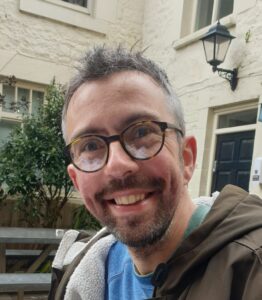
“The Immersiveness of Contemporary British and Irish Place Writing”
Date & time TBA (CET), online (Zoom).
Charles Altieri (University of California at Berkeley)
Charles Altieri is professor Emeritus in the Department of English at University of California at Berkeley and a major literary critic of poetry. He is the author of twelve books, including Wallace Stevens and the Demands of Modernity: Toward a Phenomenology of Value (Cornell UP, 2013), and Painterly Abstraction in Modernist American Poetry (Cambridge UP: The Contemporaneity of Modernism. He applies Hegel and Wittgenstein’s philosophical prism to the analysis of literary texts. He is member of the American Academy of Arts and Sciences. This is a brief selection of his books: Enlarging the Temple: New Directions in American Poetry of the 1960s(Bucknell UP, 1979), Self and Sensibility in Contemporary American Poetry (Cambridge UP 1984), Subjective Agency: A Theory of First-Person Expressivity and its Social Implications (Blackwells, 199), Postmodernism Now: Essays on Contemporaneity in the Arts (Penn State UP, 1998), The Particulars of Rapture: An Aesthetics of the Affects (Cornell UP, 2003), The Art of Modern American Poetry (Blackwells, 2005), Wallace Stevens and the Demands of Modernity: Toward a Phenomenology of Value (Cornell University Press, 2013).
https://english.berkeley.edu/people/charles-f-altieri

“Imaginative experience in the Lyric”
Date & time TBA (CET), online (Zoom).


